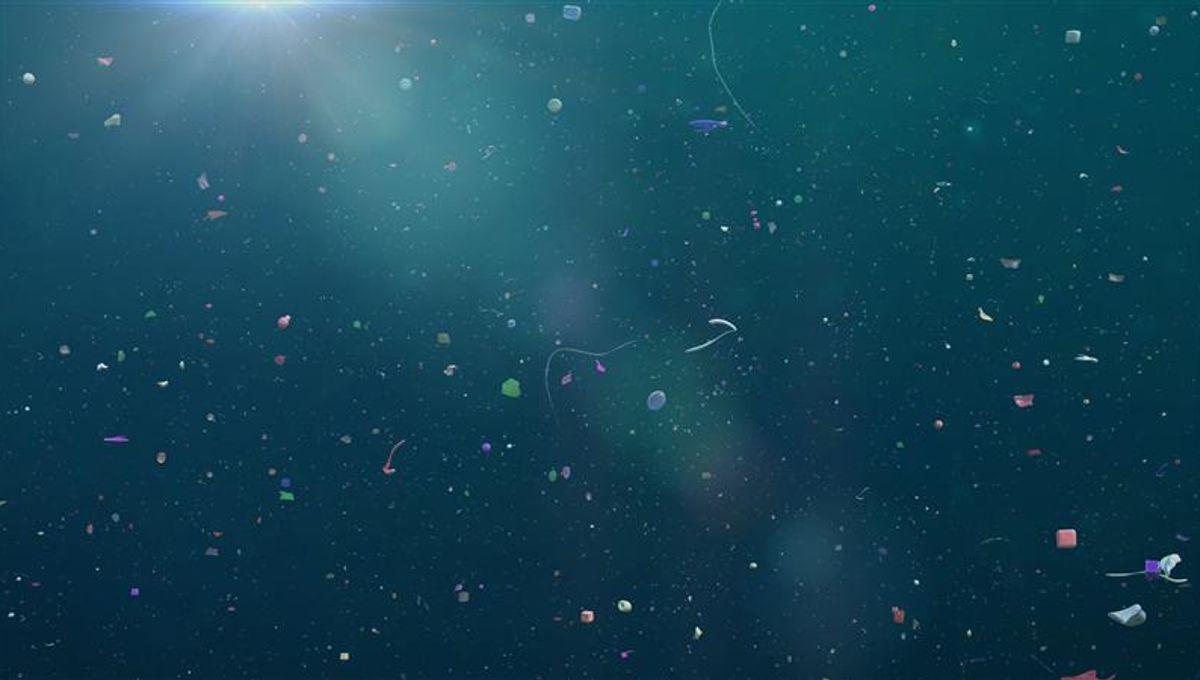
Microplastics have now become a major concern across the planet. Humans have spread plastic so far that they are impacting every aspect of the natural world. But they are also invading our bodies through inhalation and ingestion, the long-term consequences of which are still unknown. So, what can we do about it?
When we say microplastics, as well as nanoplastics (plastic fragments that are 100 nanometers or less in size), are everywhere, we mean it. The more we learn about these tiny pieces of plastic, the more they are turning up in new and worrying places, from the deepest points of the ocean to the highest peaks of mountains. They have even been found in Antarctic ice and are constantly swirling in the atmosphere.
The almost ubiquitous presence of these fragments could also pose a serious threat to our health, especially as they have now been identified in our food, our internal organs, and even the placenta. Just recently, they have been found in the fatty deposits that build up in some people’s arteries, which may contribute to heart attacks, strokes, and even death.
The future is plastic, and we should be concerned about that. But new research has offered at least one cost-effective and simple solution to help reduce one of the ways they can enter our bodies. Simply boil the water that you get from your tap.
Eddy Zeng from Jinan University, China, and colleagues have found that boiling tap water for five minutes can remove over 80 percent of plastic contaminants.
“A large proportion of the global population maintains the habit of drinking tap and/or bottled water, unintentionally overlooking the issues of [nano and microplastic] exposure”, Zeng and his team note in their new study.
This is in contrast to many Asian countries, such as China, Vietnam, and Indonesia, where drinking boiled water is more common. However, as the team explains, even this habit is “often regarded as a local tradition and prevails only in a few regions.”
As such, plastic-contaminated water poses a risk to many people across the world, which led the researchers to explore options to remove it.
To test their thinking, the team measured samples of tap water for their nano and microplastic (NMP) content and found that there was an average concentration of 1 milligram per liter. After they boiled the samples for 5 minutes and let them cool, they found that more than 80 percent of the NMPs had been removed.
“We estimated that intakes of NMPs through boiled water consumption were two to five times less than those through tap water on a daily basis,” Zeng told New Scientist. “This simple but effective boiling-water strategy can ‘decontaminate’ NMPs from household tap water and has the potential for harmlessly alleviating human exposure to NMPs through water consumption.”
It seems that, by boiling the water, the NMPs became attached to the limescale that comes from the calcium in the water. As such, this meant that boiling tended to be better at removing plastics from “hard” water – the kind that has a higher level of calcium in it.
For instance, the study showed that boiling hard water containing 300 milligrams of calcium carbonate led to about 90 percent less plastic in the cooled product.
Regardless of its calcium content, boiling water could still lower the amount of plastic it contains, which is important for people living in countries where tap water is consumed more frequently.
The team concludes that their work offers a potentially valuable solution to removing plastic from contaminated water, but others suggest less reactive solutions, such as finding sustainable ways to limit the spread of micro and nanoplastics more generally. A first step could be to “modify drinking water treatment plants,” as Caroline Gauchotte-Lindsay, an environmental engineer at the University of Glasgow, told New Scientist, so that contaminated water can be limited in the first instance.
The study is published in Environmental Science & Technology Letters.
Source Link: There May Be A Simple Trick To Remove Microplastics From Your Drinking Water